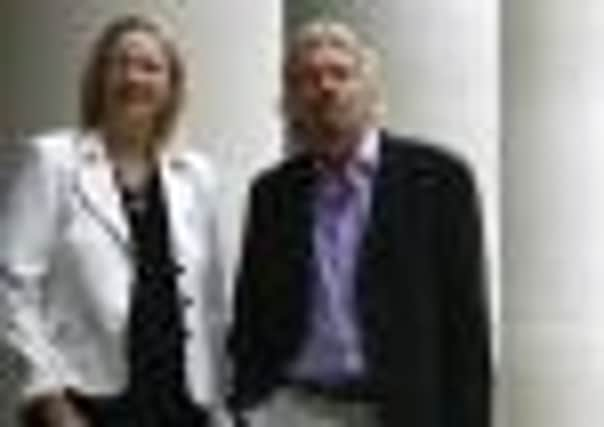Virgin territory for burgeoning bank


Visitors to the Virgin Money lounge cannot avoid the inimitable branding and milestones in the parent group’s story: the unmistakable cover of the 1973 album Tubular Bells; the red hot air balloons; an early megastore; and the Virgin Atlantic cabin crew from the more recent advertising campaign. Sprinkled among them are images of Virgin founder Sir Richard Branson at various stages of his illustrious life.
Today, the building is home to 130 staff running the corporate HQ for a branch of the Virgin empire that is close to becoming a full service bank.
Advertisement
Hide AdAdvertisement
Hide AdFor two decades, the company provided savings accounts, mortgages and credit cards, but made a step-change in its offering in January following the acquisition of Northern Rock, the good bank that was split from the more toxic bad part of the lender.
It added a million customers to the existing three million, a figure likely to hit five million by the end of the year. Virgin also acquired 75 branches, providing it with its first high street banking presence.
Jayne-Anne Gadhia, chief executive of Virgin Money, which tonight sponsors the Edinburgh fireworks concert, expects the integration of the two companies to be complete by October when the Northern Rock brand will be expunged.
Virgin will then look at new mortgage products and a current account. Servicing the latter will require up 200 additional staff and a decision will be made next year on where to base them, with Edinburgh among the possible locations.
Gadhia divides her time mainly between the Scottish capital and the operational head office in Newcastle, where 2,100 former Northern Rock employees have generally welcomed the change of owner, sharing an enthusiasm for the changeover with customers, of whom 40,000 responded – in the main, positively – to a questionnaire.
As a so-called “challenger” bank, Virgin shares the expectations of other entrants that it can capitalise on the loss of trust in the mainstream banks, but Gadhia knows that enticing them means offering an alternative that is not only different, but better.
The “lounge” concept is one example of how Virgin is experimenting with new ideas. Spread across three rooms on the first floor, it is essentially a cafe-style area where signed-up members can relax, have a coffee, read the papers or a book – including several volumes of Branson’s biography – or even play the baby grand.
Gadhia recalled her time at Royal Bank of Scotland which had a similar facility at one of its branches in Princes Street. “There was a ladies room, somewhere customers could just chill after doing their shopping. I remember customers being disappointed to lose it.
Advertisement
Hide AdAdvertisement
Hide Ad“When I thought about what to do with the rooms here, it seemed to me we could introduce something on the same lines.”
The lounges are not branches, although there are computers giving access to accounts. Staff are on hand to offer guidance, but they are not there to sell products. No-one is handed a leaflet or ushered into a room to have pensions or life polices pushed at them. However, they generate business through the intended relationship building.
Edinburgh was the first and other lounges followed in Manchester and Norwich. In the first half of the year, 50,000 customers used them. Another will open in London.
Gadhia says Virgin Money is ahead of its target and July was its first month in profit since the merger with the loss-making Northern Rock in January. It is attracting a substantial share of mortgages.
She acknowledges other entrants are trying to win business by appealing to those dissatisfied with the established banks, but she believes the retailer banks, such as Marks & Spencer and Tesco, face a different challenge.
“I just don’t know if someone looking for underwear is also going to apply for a current account,” she says, arguing she sees the established banks as her main rivals.
For some time Virgin Money has targeted a flotation in order to raise the capital it needs to properly compete, but she says there are no immediate plans for a share issue. Even when it does, Virgin will remain much smaller than those with trillions on their balance sheets.
“We have a long way to go before anyone can call us a monolith,” she says.